By Joella Korczak, Seawater Solutions Programme Officer
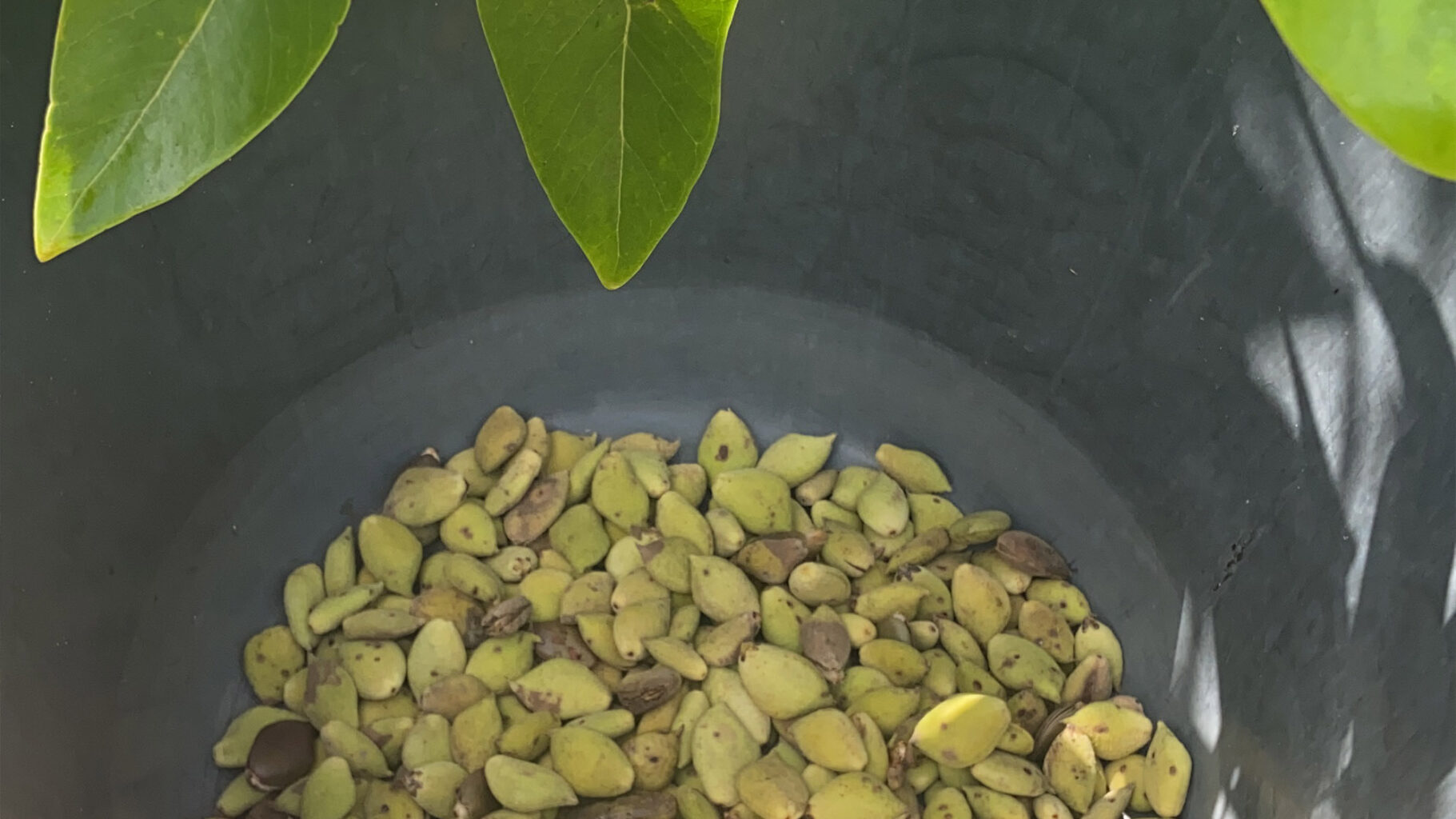
A key area of our Ghana operations is mangrove forestry. Mangroves play an extremely important role in tropical environments and social and economic development within them, producing a number of impressive benefits locally: they improve water quality; prevent erosion and protect coastlines by acting as natural sea defences; and they are a nursery and breeding environment for shellfish.
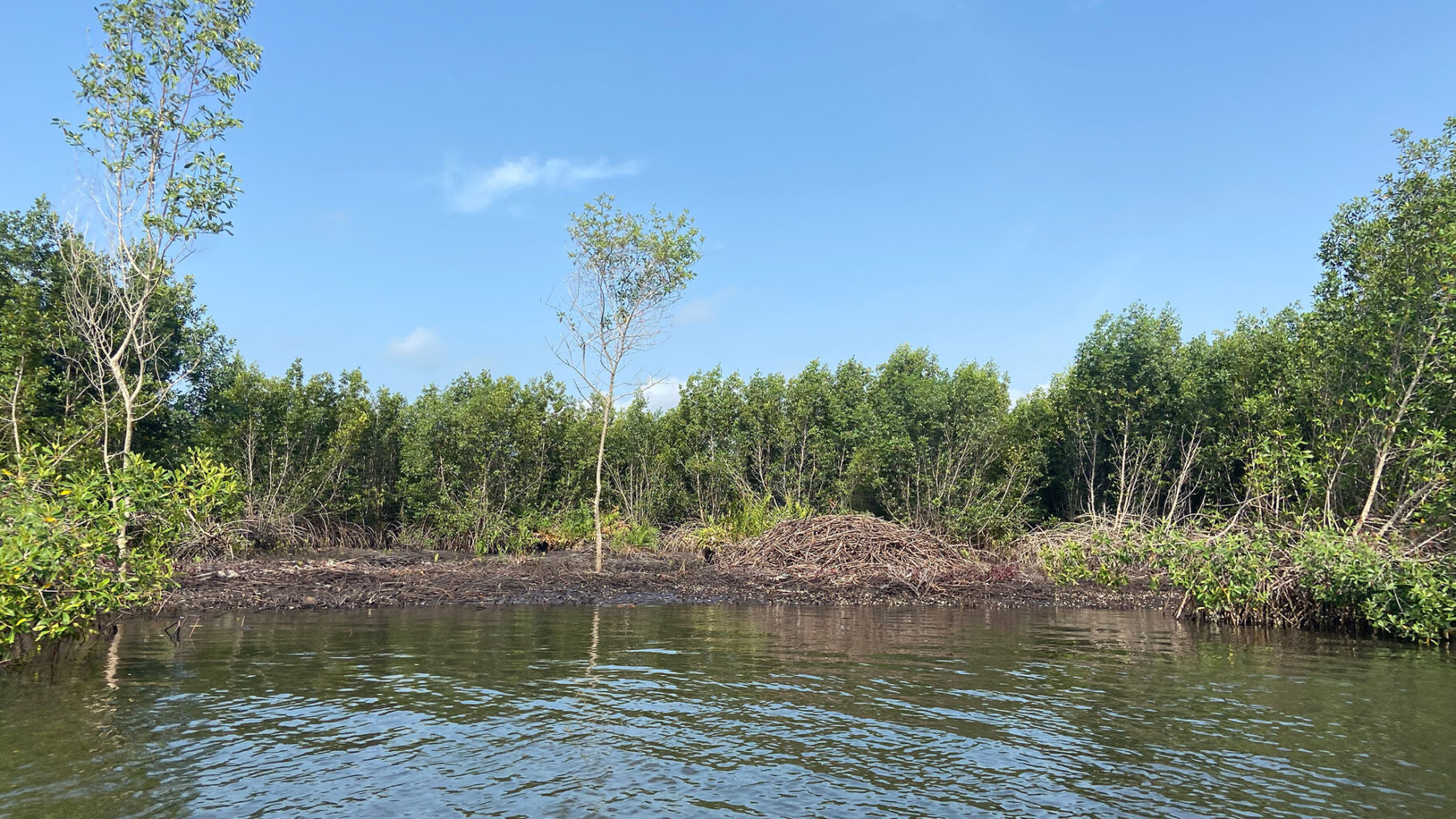
Globally, mangroves are champions of carbon sequestration. Estimates show that they can store 3 to 4 times more carbon than other tropical forests. While they just represent 1% of global forest carbon sequestration, they are effective as “blue carbon” sinks in which they account for 14% of global ocean carbon sequestration.
Nevertheless, mangrove ecosystems are highly fragile and threatened. Already half of the world’s mangrove forests are lost. The loss of mangrove forests is three times higher than the overall rate of global forest loss.
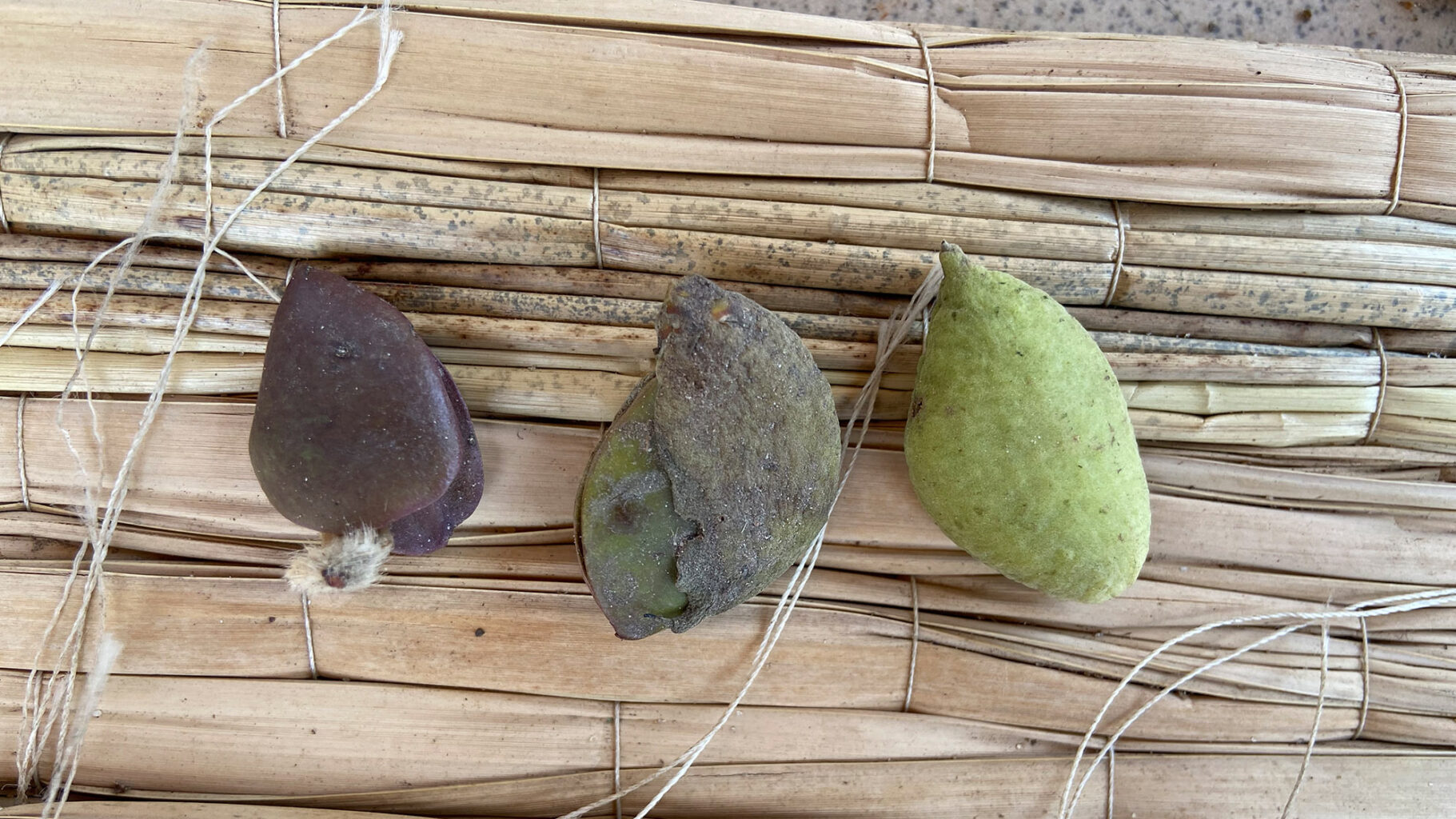
In Ghana’s Volta region, where the majority of Ghana’s mangrove forests are found, mangroves are an important source of livelihood. People cut down mangroves and sell it as fuelwood used to cook and smoke food for preservation.
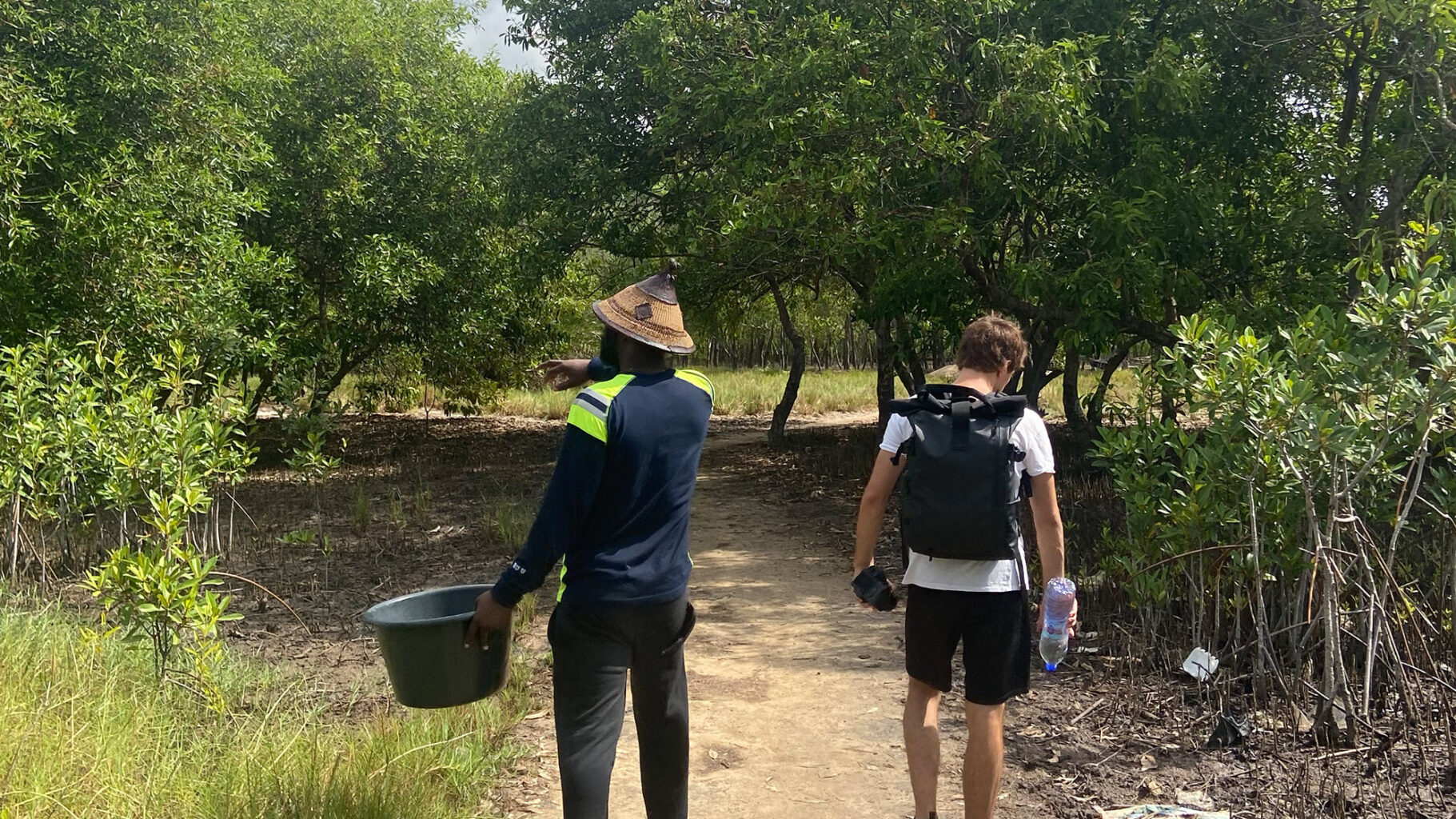
Our mission here is to restore the mangrove forests that have been destroyed as a result of this. Recently, we went on a boat trip to collect seedlings of white mangroves. White mangroves can survive in harsh environments than red mangroves, the other common mangrove variant in the Volta, but they also need more attention in their early growth cycle.
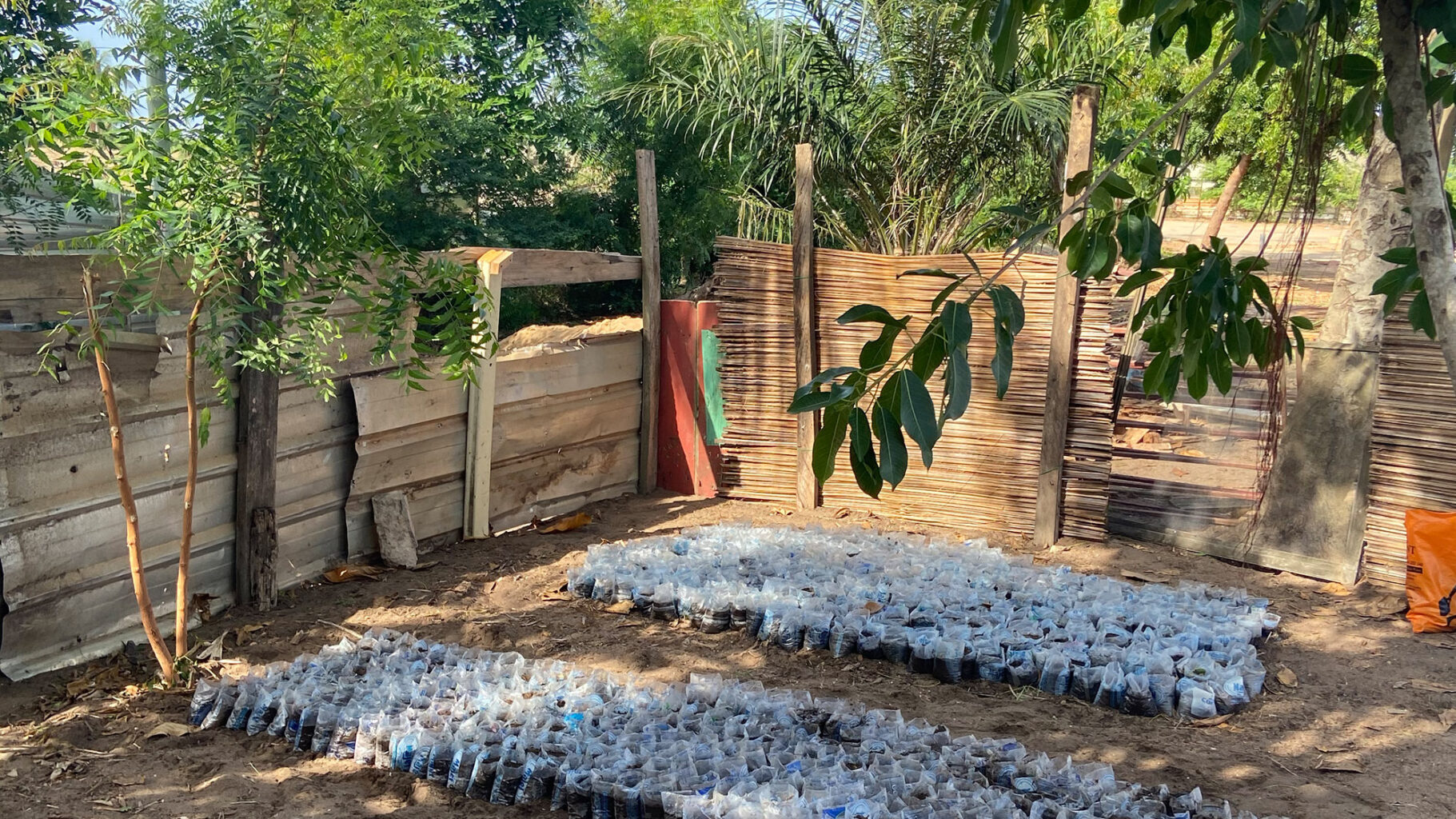
That’s why we set up our own mangrove nursery. Yesterday, we planted 869 mangrove seedlings. We will need to water them every third day with a mix of fresh and saltwater, so that they can germinate! If all goes well we will have little mangrove trees in our nursery in the next 2 weeks. We can’t wait to plant them on our sites!